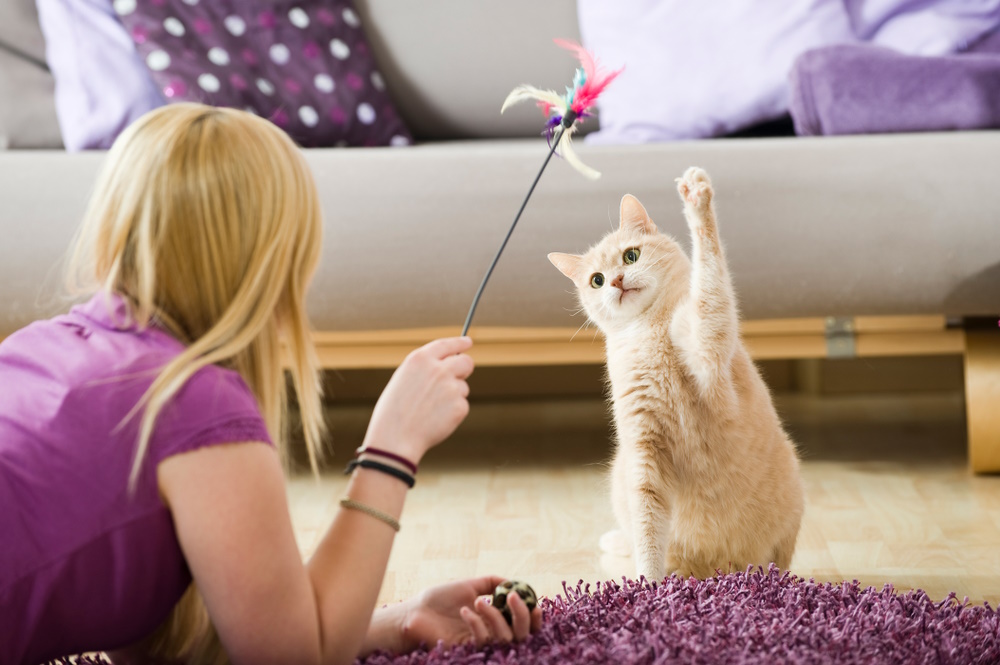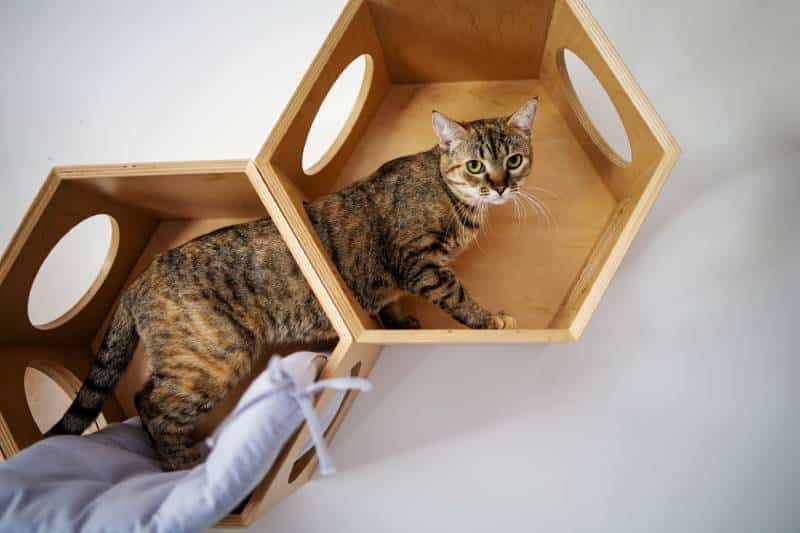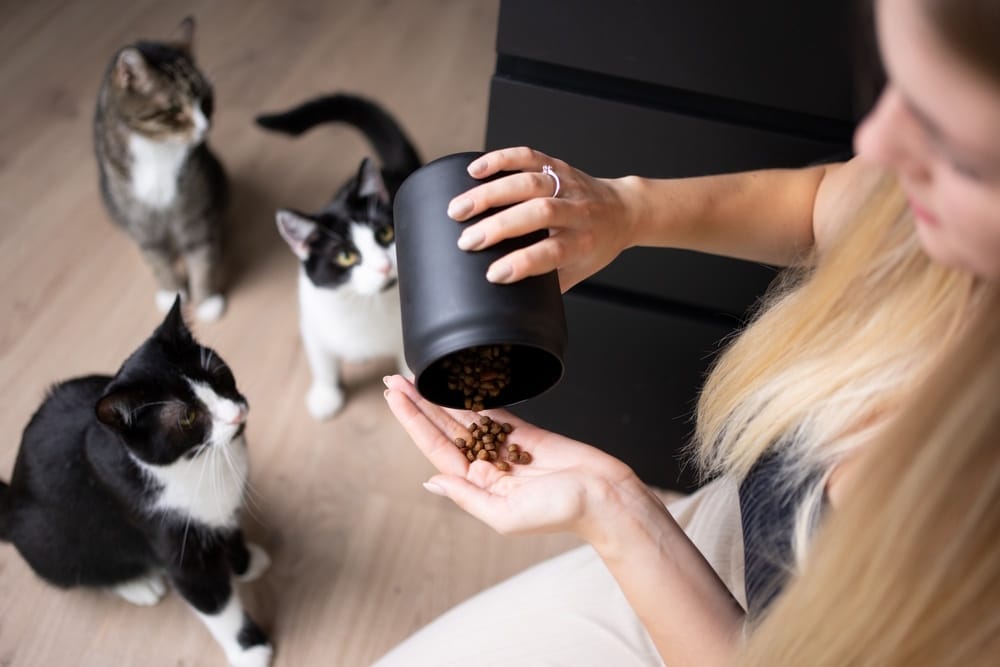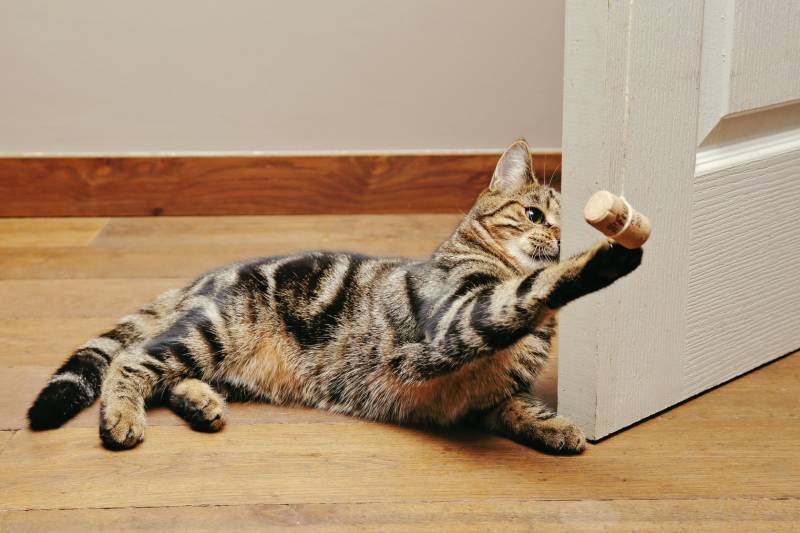Everybody loves the idea of having the smartest pet on the block, but how do you actually get them to start performing tricks that show off their big brains? The truth is simpler than you might think, and the key to making your cat seem smart is stimulation and consistency.
So, can you make your cat smarter, and how do you go about it? We’ve answered those questions and more for you below.
Can You Make Your Cat Smarter?
While there are plenty of tips out there to help you make the most of your cat’s brain power, there’s no scientifically proven technique to actually make your cat smarter in terms of IQ. A cat’s “smartness” likely largely comes down to genetics, but with proper training, almost every cat is incredibly intelligent, meaning you can teach them all sorts of things, which most of us associate with “smart” pets.
Basically, we associate a cat’s overall intelligence with their ability to learn and perform certain tricks and tasks, and there are things you can do to keep their wits about them for as long as possible.

The 5 Tips for Keeping Your Cat Mentally Sharp
1. Keep Them Active
Lazy cats don’t have a reason to exercise routine parts of their brain. Keeping your cat moving keeps them thinking, and it has numerous health benefits for them. Just like exercise is good for your brain, it’s good for your cat’s brain too.
As a reminder, physical stimulation isn’t the only important aspect of this. Sure, being physically fit is good for brain health, but you also need to keep them mentally stimulated. While the brain is technically an organ, you can work it like a muscle. Providing puzzle feeders, for example, can encourage your cat to figure things out on their own. Once they figure out one puzzle, give them a harder one. The more you can get your cat to problem solve, the more active their brain will be.
2. Build Obstacle Courses
This is a win-win, no matter how you look at it. Not only is building a kitty obstacle course a great way to keep your cat moving and get them thinking, but it’s also a lot of fun for you and your cat. To really get your cat engaged in the obstacle course, we recommend putting one of their favorite treats at the end. Once again, this encourages both mental and physical stimulation, which is necessary for keeping their brains in working order as they age.

3. Use Food Puzzles
We’ve already touched on this, but we need to remind you that food is an amazing motivator for just about everyone, and it’s especially effective for many cats. There are tons of food puzzle toys for cats out there, and they have various levels so that your cat can work their way up.
4. Train With Treats
While you can train a puppy with treats and positive motivation, cats probably care more about the treats than anything else. If you want your cat to start paying attention to what you’re trying to teach them, try using food as a motivator. This encourages them to use their brains and really try to figure out what you’re trying to teach them. It requires a bit of focus, and positive reinforcement is the best way to get a cat to stay focused while learning new tricks. Training with treats can also be complementary to clicker training, a more modern approach to pet training, and often a very successful one.
Of course, you need to start with some basic tricks, like sitting, but when enough persistence and patience on your end, intelligent cats will be able to keep up with all the commands that a dog can, including, shake, high-five, roll over, etc.

5. Keep Up With Vet Visits
Often when you start to see a cognitive decline in your cat, it’s because of an underlying medical issue. Catching issues early can keep your cat’s intelligence as high as possible. Routine checkups are a critical part of being a responsible pet owner, especially as they age. So, if you want your cat to remain brainy, it’s best to ensure their basic requirements are being met and that they are in good overall health.
Great Brain Foods for Your Cat
While these foods won’t make your cat any smarter, they can help stave off mental degradation and keep them as sharp as possible.
To start, foods high in omega fatty acids are crucial for your most species’ brain health. Even moreso in cats, due to their unique deficiency in enzymes that help convert certain fatty acids into other products. Therefore, an appropriately balanced, high quality diet is extremely important- and it must be made specifically for cats. Some diets specifically target aging cats and/or cognitive health, so speak with your vet to find something that will work for all aspects of your cat’s health needs.
Final Thoughts
While genetics can play a huge role in how smart your cat is, how smart they’ll stay is up to you! Keep them moving, stay engaged with them, and ensure they get all the medical care they need. It’s all part of being a responsible pet owner, and when you do it right, it’s really just another way to spend as much time as possible with your feline friend!
Featured Image Credit: mariesacha, Shutterstock












